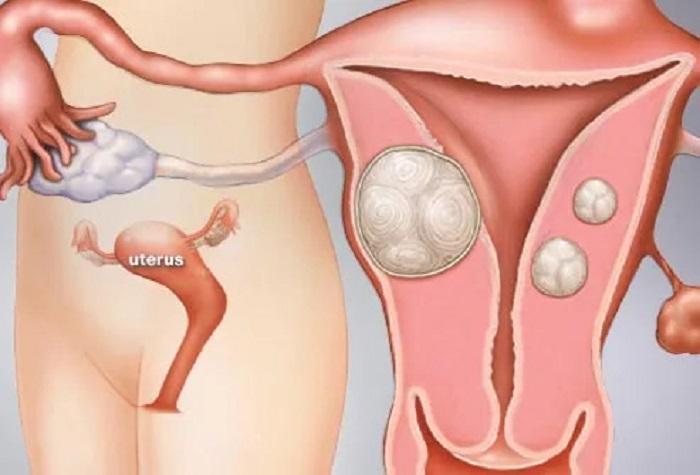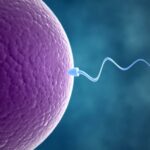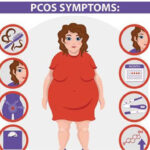Many women are in Nigeria and other parts of the world craving to have their own kids. Many have been diagnosed with fibroid, and friends, family and wellwishers would advise them to remove the fibroid so they can get pregnant.
Is fibroid removal the solution to getting pregnant and having children? In this piece, Risikat Ramoni researched into the relationship between infertility and fibroid.
- Attacks: Orlu deserted as security agents comb for IPOB members
- Hoodlums storm site of ruptured pipeline to scoop diesel
Yinka Davies has been married for over five years without a child. She has been to many hospitals and done many tests in a bid to get pregnant.
Recently, she was told by a gynaecologist that she had fibroid. She was disturbed and felt the fibroid could be the reason she was unable to have her children.
While her assumptions may be true according to some experts, some other experts insist fibroid and infertility are not related.
In a document by reproductivefacts.org, approximately five to 10 percent of infertile women have fibroids although their size and location determine whether fibroids affect fertility.
Fibroids affect approximately 35 to 77 percent of reproductive-age women.
In an explanation by George Kofinas of Kofinas fertility, a common misconception is that fibroids cause infertility, but the truth is that their “presence only signifies potential roadblocks to your fertility.”
According to the MD of Mcleod health, Michael Davidson, fibroids can create problems for the fertilized egg attaching to the lining of the uterus.
Some fibroids grow outside the uterus (submucosal fibroids), changing the shape of the uterus and making it harder to get pregnant.

These growths, he insisted, can stop a woman from becoming pregnant.
Davidson further emphasised women who are pregnant, but have undiagnosed fibroids, may deliver prematurely or sadly, may lose the baby through a miscarriage.
The fibroids, he said, may interfere with the baby’s development, adding that the oestrogen from the pregnancy may also cause the fibroids to grow faster.
In his view, the MD of Nordica Fertility Centre in Lagos, Dr Abayomi Ajayi, explained because fibroid itself does not cause infertility except in two conditions as the relationship between fibroid and infertility is a tricky one.
He mentioned that fibroid and infertility are related only, “If it’s blocking where the tube and the uterus meets and if it’s staying where a baby should stay, that is what is called a submucous fibroid. Most of the time, that leads to miscarriage rather than infertility except if it is very big and implantation cannot take place.”
He stressed, “We have found a relationship between fibroid and infertility such that people who have fibroid tend to have infertility, it is an association, not causal relationship. Somebody did a study many years ago and found out that people who have fibroid also used to have additions in the pelvis, whether that is causal or not, we don’t know.”
One common factor linking fibroid and infertility is age. “The older a woman becomes, the more likely that she would have fibroids if she didn’t have children,” Ajayi says.
“The older a woman becomes, the more the chances of infertility because the egg also ages. Majority of the women who have fibroid and infertility are not very young, but they have come to ascribe it to the fibroid and that is where we have a lot of problems.”
In his suggestion, Dr Ajayi was of the opinion that whoever has both infertility and fibroid, “We must investigate to see why the woman is not getting pregnant before talking about treating fibroids. For a long time now, we do investigate whether the woman’s tubes are open as well as investigate the sperm.”
What then is the solution to fibroid and infertility
The Nordica boss stressed there are many people who have fibroids, who don’t want surgery and they have not done any test and they think it is by treating the fibroid that their infertility will go away.
“That is not true.”
Infertility could be caused by the sperm of the man which has made the woman not to have children for a long time and then she started growing fibroids.
“Now, the sperm thing is still there and the woman wants to get rid of the fibroids in order for her to have children, that is not going to work,” Abayomi noted.
Many have the misconception that surgery (myomectomy) is the only solution to removing their fibroid so as to get pregnant, rather, other options are emerging.
Dr Abayomi hinted that many women do not want fibroid surgery and they have seen high-intensity focused ultrasound (HIFU) procedure as a way out of it, they now want to seek a solution for infertility through HIFU.
“I’ve been trying to convince many women that HIFU does not treat infertility, rather it treats only fibroids. The problem now is that a lot of doctors who are not qualified are out there, they will do a myomectomy and the woman will still not conceive. The reason is, they have not really treated the real problem.”

Must a woman remove fibroid before she can conceive
Pregnancy and fibroid can co-exist as explained by the fertility expert. A doctor would need to assess what kind of fibroid it is, whether it is submucous, intramural or subserous.
“The submucous stays where the baby should stay. When a fibroid is there, no matter the size, it is important that it should be removed and the best way to remove that fibroid is using the stereoscopy not cutting the woman open because that will leave scars. Stereoscopy is getting more popular in Nigeria now.
“As for intramural and subserous types of fibroid, you might not remove them. It is not every fibroid that we need to remove. When intramural is 5 or 6cm, then, it is not necessary to remove. Many go to the hospital to remove a 3cm intramural fibroid, it is an unnecessary surgery because there is no way that surgery will not leave a scar,” Ajayi admitted.
How can the scar caused by a fibroid surgery affect fertility
Ajayi explained: “If a woman has a scar in the uterus, even IVF will not work, so, there will be a need to break down the scar because IVF needs to implant also. If they are going for fertility treatment, there will still be another issue. Some doctors are not helping matters as so many people who are not even gynecologists are removing fibroids and it usually leads to scars.
“In a study we conducted at Nordica examining over 900 women, it was discovered that 61 percent of the women had abnormalities in their uterus and 50 percent of it was directly as a result of scars. The scar was caused by fibroid surgery, caesarean section and D & C.
“Fibroids is the commonest cause of the scar. The truth is, no doctor goes out to harm people. Scars are usually not intended, sometimes, he may need to cut through the layers of the uterus to get to the fibroid. It is not about the skill of the surgeon but about the person concerned. Now, to get results, it is important to use the appropriate technique for the appropriate disease.”

 Join Daily Trust WhatsApp Community For Quick Access To News and Happenings Around You.
Join Daily Trust WhatsApp Community For Quick Access To News and Happenings Around You.


